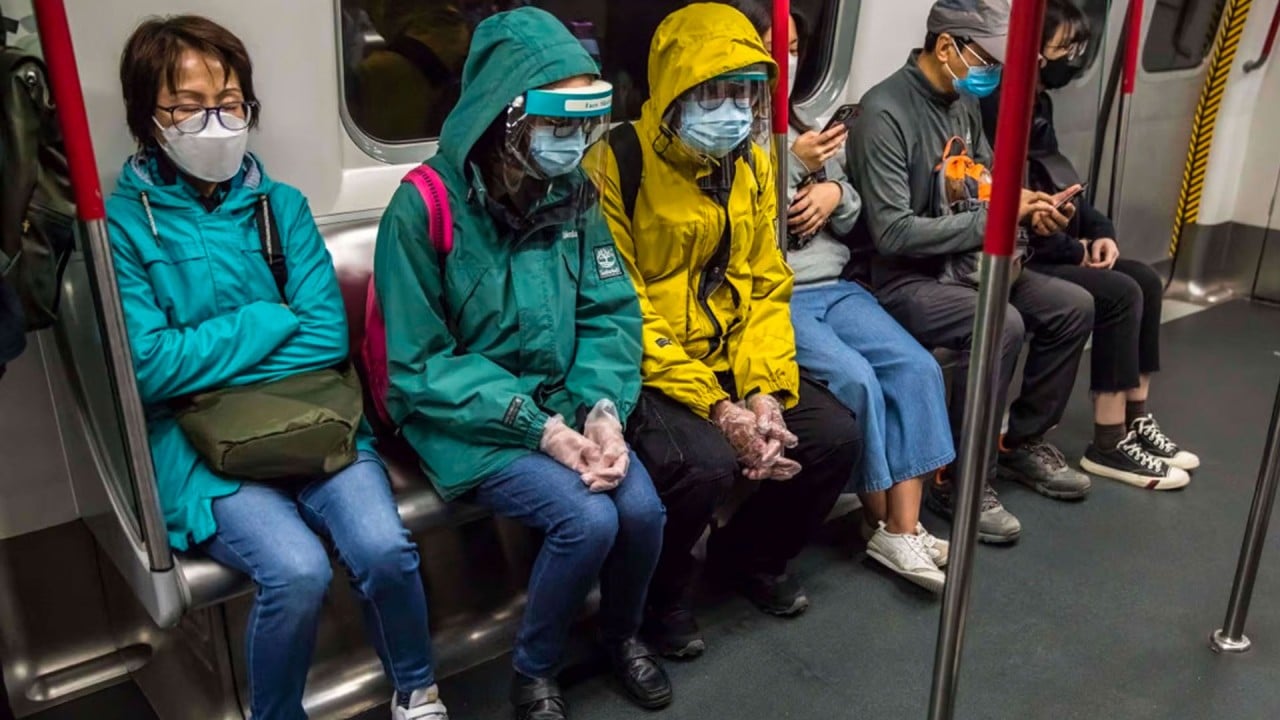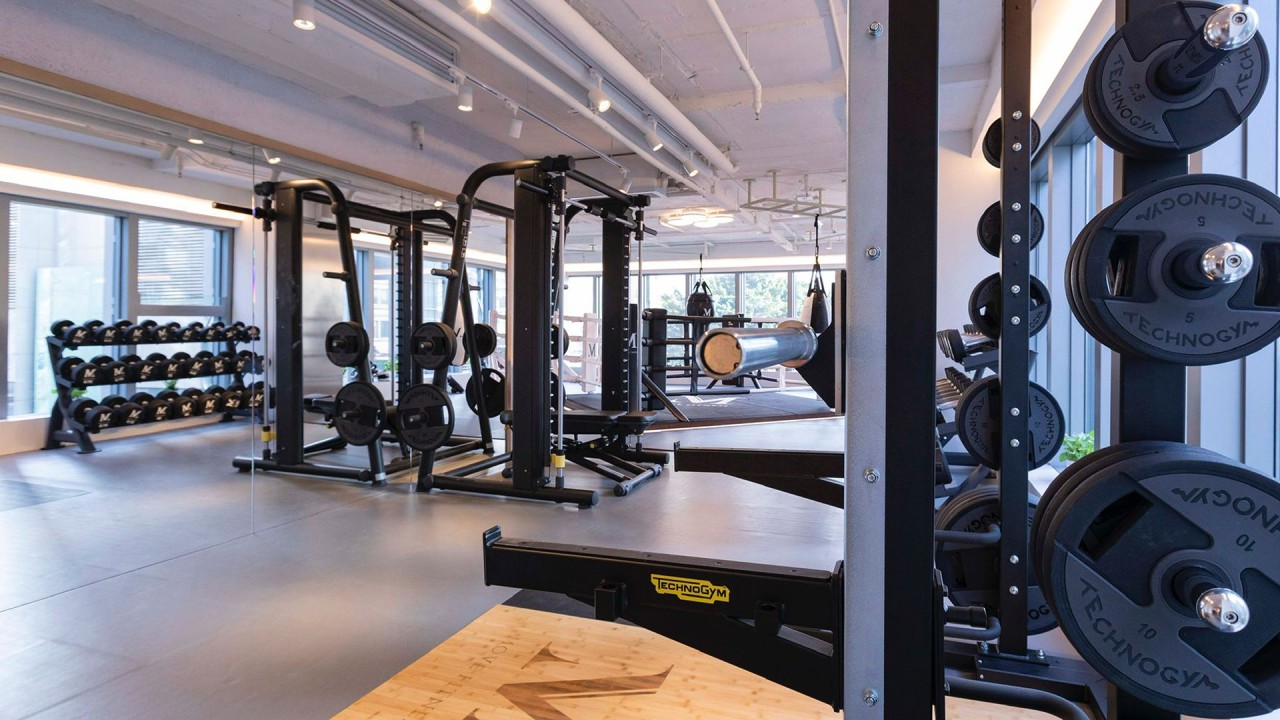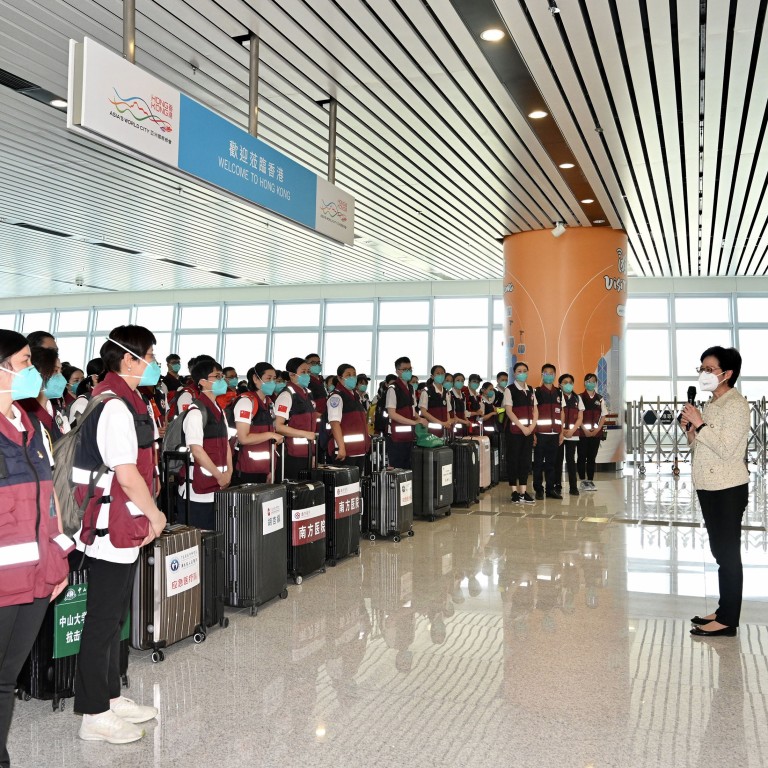
Coronavirus: Hong Kong could ease flight bans, class suspensions next week, city leader says, as 21,650 cases reported
- The measures up for review also include lengthy quarantine periods for incoming travellers, with an announcement also due on a controversial plan for universal Covid-19 testing
- Many of the measures were supposed to last until April 20, but Lam said she had ‘a very strong feeling that people’s tolerance is fading’
Hong Kong may ease some of its tough pandemic restrictions that include flight bans, class suspensions and lengthy quarantine for travellers a month earlier than planned, with the city’s leader conceding that public tolerance is reaching its limit.
Speaking at her daily press conference on Thursday, Chief Executive Carrie Lam Cheng Yuet-ngor said it was time for the government to undertake a “midterm review” of its current measures, after political and medical heavyweights urged authorities to offer a road map for the next stage of the coronavirus epidemic.
“I’m working [on] it day and night to find the optimal solution for Hong Kong,” Lam said, referring to a plan for the city to reopen to the outside world.
“The time has come, not because the number of cases has come down significantly – they are actually now at a high-level plateau – but I have a very strong feeling that people’s tolerance is fading. I have a very good [feeling] that some of our financial institutions are losing patience about the isolated status of Hong Kong.”
On Thursday, Hong Kong confirmed 21,650 new coronavirus cases – including 13,022 through rapid antigen tests – bringing the city’s overall tally for the pandemic to 996,862. Health authorities reported 289 deaths, including backlogged ones, taking the total to 5,136.
Officials also urged residents experiencing mild or no symptoms to download the Hospital Authority’s “HA Go” app, which allowed them to find the earliest available appointments for treatment at clinics, rather than make inquiries by phone.
As of Wednesday, nearly 6,300 patients have been given the oral drug molnupiravir from MSD, while 183 have received Paxlovid by Pfizer, which only became available on Wednesday.
The drugs are used in public hospitals, designated clinics, homes for the elderly and community isolation facilities.
Use mainland help well, plan ahead in pandemic fight, top official tells Hong Kong
Lam hinted that the government would relax the rule requiring arrivals to spend 14 days in quarantine, given that fully vaccinated close contacts of local patients were only required to isolate for a week, provided a rapid antigen test taken on days six and seven returned a negative result.
“In terms of consistency, there is a very strong basis for us to apply more or less the same rule to arrivals. But we just need a bit more time,” Lam said.
Capacity of public hospitals would also need to be taken into account when drafting plans to reopen the city to international travel, she added.
In January, the government banned flights from Australia, Britain, Canada, France, India, Pakistan, the Philippines and the United States, with Nepal added a month later.
Respiratory medicine expert Dr Leung Chi-chiu backed the idea of rescinding the ban, although he cautioned some restrictions should remain in place.
“But other than allowing stranded residents to return to the city without undergoing a 14-day ‘washout’ period, there is no reason to largely reopen international travel, as this may bring in other variants that will make it more challenging to control the virus,” Leung said.
The quarantine period for travellers could be cut in half to seven days to match the current isolation policy for fully vaccinated patients and household contacts, Leung suggested, while stressing officials should monitor whether the change encouraged a large number of residents to start travelling again and then make adjustments accordingly.
But should the government persist with its “dynamic-zero” Covid-19 strategy, Hong Kong could be forced to return to more stringent measures, including a minimum 14 days’ quarantine for travellers, when the number of daily cases falls into the three digits to guard against imported infections, he warned.
Hong Kong leader’s daily Covid-19 briefings ‘may undermine credibility instead’
While rumours had circulated the government would launch a compulsory universal testing programme on March 26, Lam said on Thursday the government had never publicly given the date, adding officials had been refining the plan since late February.
A source clarified March 26 had been considered as a potential start date for the universal screening exercise, but the plan had changed after leading mainland Chinese epidemiologist Dr Liang Wannian arrived in Hong Kong earlier this month to help guide the government’s response to the health crisis.
“Based on the discussions with Liang, the universal testing exercise should only be carried out when we reach three- to four-digit [daily] case numbers in the city,” the source said.
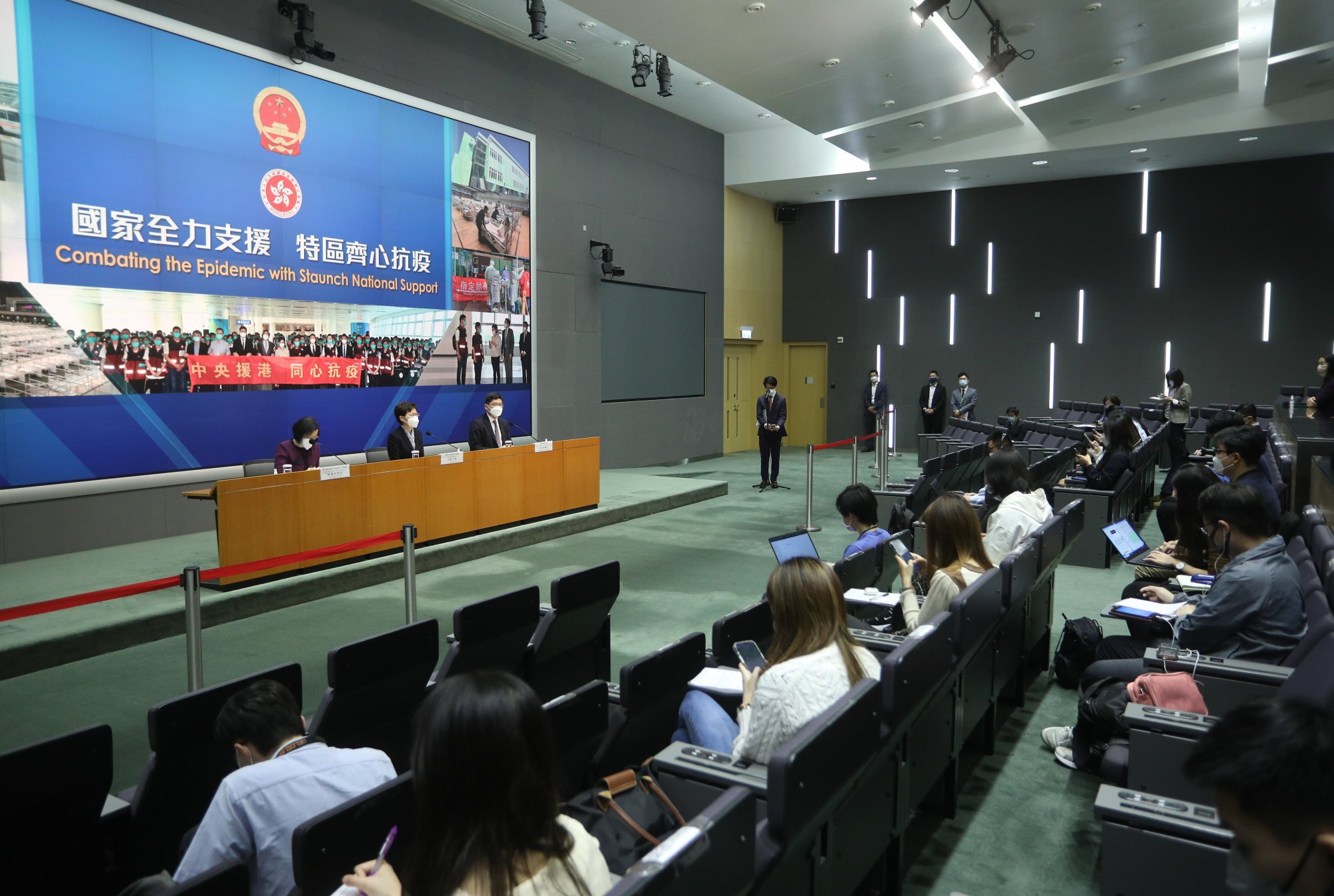
Lam’s remarks came a day after Xia Baolong, director of the State Council’s Hong Kong and Macau Affairs Office, called on the local government to plan for the next phase of the outbreak in an orderly manner during a high-level meeting on the city’s coronavirus situation.
The task force was formed after Chinese President Xi Jinping instructed mainland authorities to help Hong Kong combat the fifth wave of infections.
Xia said in the meeting – the second in the past week – plans should adhere to the strategy of “three reductions, three focuses and one priority”.
The first element refers to reducing infections, severe cases and deaths. The second involves three specific areas of focus: boosting vaccinations among the elderly and enforcing closed-loop staffing arrangements in care homes; strengthening the work of clinics, hospitals and isolation facilities; and identifying high-risk premises for children, seniors and the disabled, and stepping up protections there.
Hong Kong police to help families collect bodies of loved ones in public hospitals
The final priority, meanwhile, was treating elderly residents.
Elderly residents account for more than 70 per cent of inpatients receiving treatment for Covid-19, up from about 50 per cent, according to HA chief executive Tony Ko Pat-sing.
Given the demand, medical services available at the makeshift treatment facility at AsiaWorld-Expo would be strengthened now that a mainland health care team had taken up roles at the facility, he revealed.
“There is a need for us to increase manpower at the AsiaWorld-Expo so that we can provide sufficient nursing care to patients who are elderly and bedridden,” he said.
“We have also conducted a review and will see if there is any area that we can improve in our medical procedures and support.”
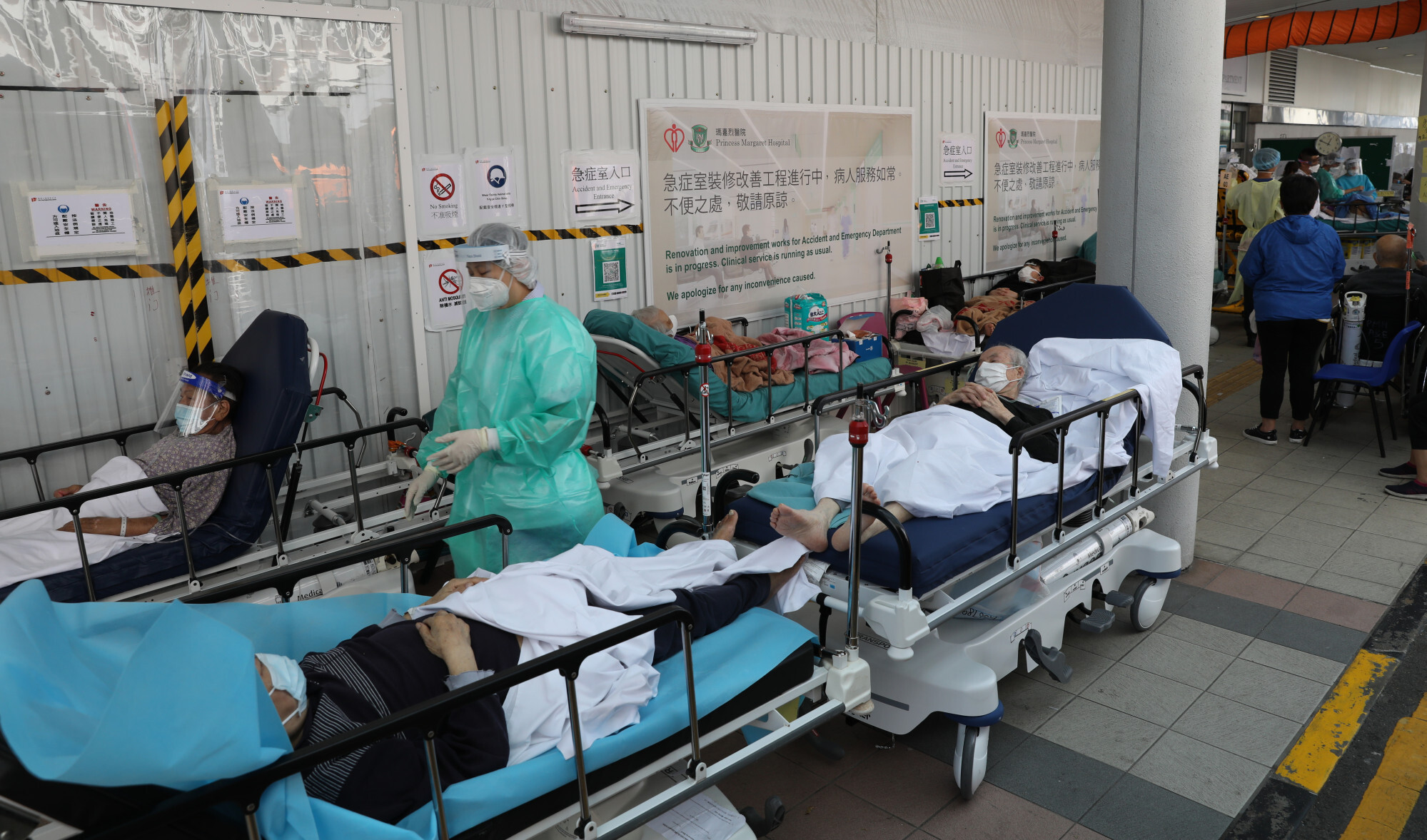
He expressed hope that a second batch of 300 mainland medical practitioners who arrived on Wednesday could begin work as soon as possible.
Lam, meanwhile, said she was saddened by news that three elderly patients at AsiaWorld-Expo had died, but stressed that it was not for lack of treatment.
“The patients who passed away were aged 89, 92 and 98, respectively. They had chronic diseases and were not vaccinated. Although they passed away, that does not mean that we did not provide them with nursing care,” she said.
Government pandemic adviser and University of Hong Kong (HKU) Professor Yuen Kwok-yung has also called on the administration to formulate a road map for the next stage of the outbreak as soon as possible so the public could have some idea of when their lives might return to normal.
Man who allegedly threw faeces inside Hong Kong isolation unit arrested
In an opinion piece co-authored with two HKU colleagues and published in the Chinese-language daily Ming Pao on Thursday, Yuen called for a series of measures aimed at preventing infections while also loosening certain restrictions.
The suggestions included enforcing double-masking, allowing mild Covid-19 patients to stay at home, letting close contacts continue to go to work if they tested negative and resuming more international flights to allow vaccinated business travellers and Hongkongers to come to the city.
He also suggested that the government gradually relax social-distancing measures once 95 per cent of residents were fully vaccinated.
Lam, however, appeared reluctant to adopt that threshold, saying the move could be counterproductive.
“If we could only relax social-distancing measures or border restrictions at the 95 per cent vaccination rate, I’m afraid it would lead to anxiety among more people,” she said, adding that imposing the threshold would effectively leave the government’s hands tied.
Lam noted it would take a long time for the city to be 95 per cent fully inoculated unless daily vaccination figures rose substantially.
Around 40,000 people a day were receiving their first dose of vaccine in late February, but that figure has gradually dwindled since then, dropping to around 8,000 on Wednesday.
Currently, 91.3 per cent of Hongkongers, excluding those aged three to 11, have had at least one dose of vaccine, and 81.3 per cent have had two. However, only 55.8 per cent of residents aged 80 and up have had their first dose.
On Friday, Lam will be joined at her daily press conference by Secretary for Labour and Welfare Law Chi-kwong, who is expected to talk about support for the unemployed.




